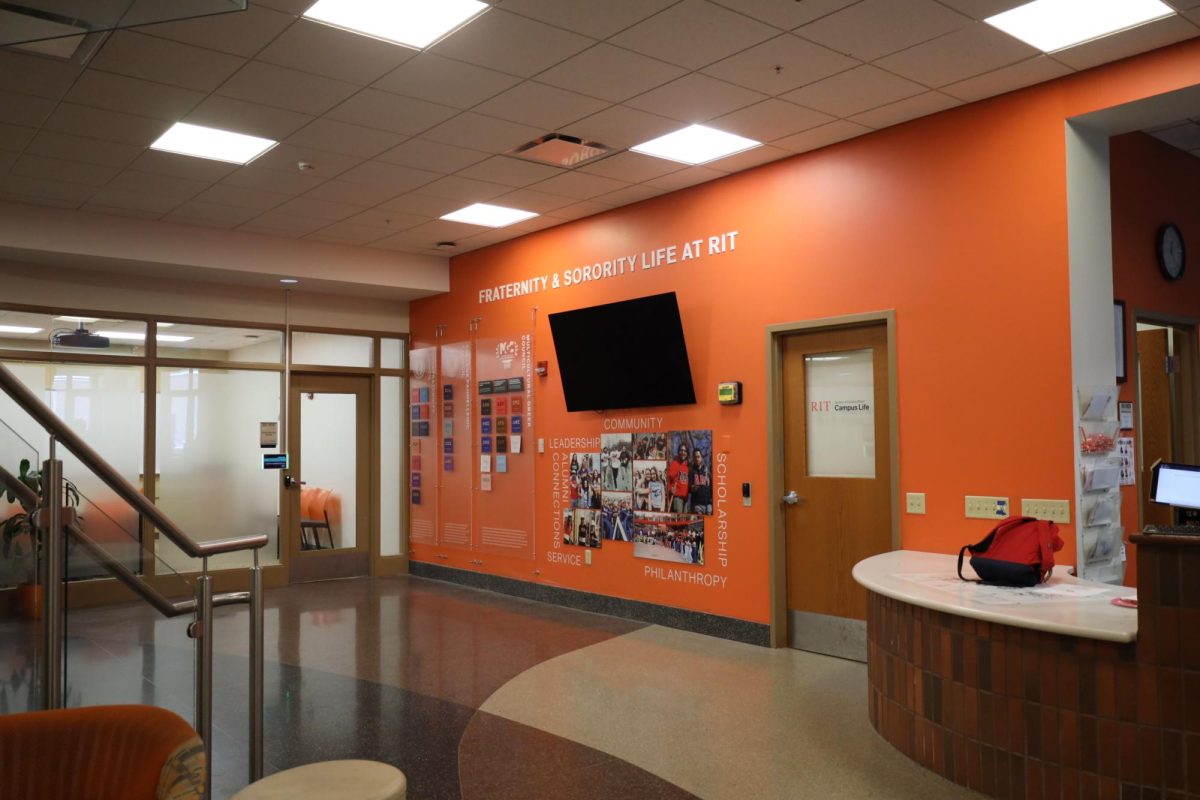Women’s, Gender, and Sexuality Studies (WGSS/WGST) has offered courses at RIT since the mid-1980s under the moniker of Women’s Studies. This eventually grew into the Women’s, Gender and Sexuality Studies program in 2004, and in 2023 it became a major. Even though the recent executive order by the White House bans institutions from receiving money for research on gender-related issues, Silvia Benso, the director of WGSS, is encouraging RIT students and leaders to continue to support the program.
Benso discussed the importance of the discipline as an opportunity for all genders to learn and grow outside of stereotypes.
“This is a program for men too. We are all in this together. We need to work together, not only to educate women, but also to educate men to be more sensitive and respectful and to be more inclusive at the gender level,” Benso explained, referring to the assumption that these programs are only for women or gender minorities.
The program explores a variety of topics, focusing on fostering discussions on the ways in which genders and sexualities are portrayed and treated in society. The courses examine how minority groups, such as women and the LGBTQ+ community, face a changing
culture, and how the patriarchy and toxic masculinity can be dismantled.
“In a way, being a feminist is not about being a woman. It’s about creating a better society for everybody because men too are stuck in gender stereotypes,” Benso said.
Finding Connection to Community Through Study
The program, while rigorous, is flexible and allows students to take courses on topics that interest them, such as women’s rights, portrayals of gender or queer activism. Multiple courses are cross-listed with the sociology and anthropology, criminal justice and public policy programs.
Third year WGSS student Maya Heatley shared their interest in the program, which has allowed them to pursue their interest in queer studies.
“It’s very important to tell queer stories and … for young queer people like me to understand queer history and how we got where we are,” they said. “I think that it’ll probably give me the ability to continue telling that history.”
Heatley also found that the WGSS program helped them become more connected to the queer community.
“Coming here and taking classes has actually kind of made me feel more like an actual queer person who’s part of a queer community, and I see the importance of this kind of work,” they explained. “I think that it’s kind of shaped the way I view myself in relation to the queer community.”
Impacts in STEM
The WGSS program can be an impactful addition as a second major and works well with many degrees offered on campus, including those within STEM fields. Second year student Kiffy Nwosu is double majoring in computer science and WGSS. Nwosu believes that the WGSS has helped carve a path to help her use her computing skills to help marginalized communities.
“I needed a strong background to actually understand the people that I plan to take care of and help for the rest of my life,” Nwosu said, “I have the technical skills … but I needed the more social skills, the more historical knowledge, to help me understand people that are part of my community, and people that are outside of my community.”
Isabella Terzoli, a second year WGSS and interpreting double major, sees the program as being beneficial for all students, even as only an
immersion or minor.
“I’m not well educated on the STEM majors, but I feel like having these women, gender, sexuality studies classes and taking them with the STEM majors can help you see the injustices that you might face in class, like women not being picked for a group, or the biases that some professors may hold against women because they’re in the STEM field,” Terzoli said.
Facing the Future With Optimism
The bachelor’s degree in WGSS is still new and currently has 20 students enrolled, 17 of whom are double majors in STEM fields. Benso remains hopeful about the future of the program at RIT.
“I hope that our students, who are going to be the future technicians, the future professionals, the future computer scientists, will approach the world with greater sensitivity to our women and gender diversities, and so they will be able to create products that are in the service of these different components of human beings, but also will develop a different, more respectful, less sexist, less misogynist, less transphobic, [less] queerphobic world. So I’m hoping that the impact will be one of social justice, also in the application of STEM disciplines.”
Benso wrote a letter to RIT faculty, including Munson, encouraging students and staff to continue to support the WGSS program.






